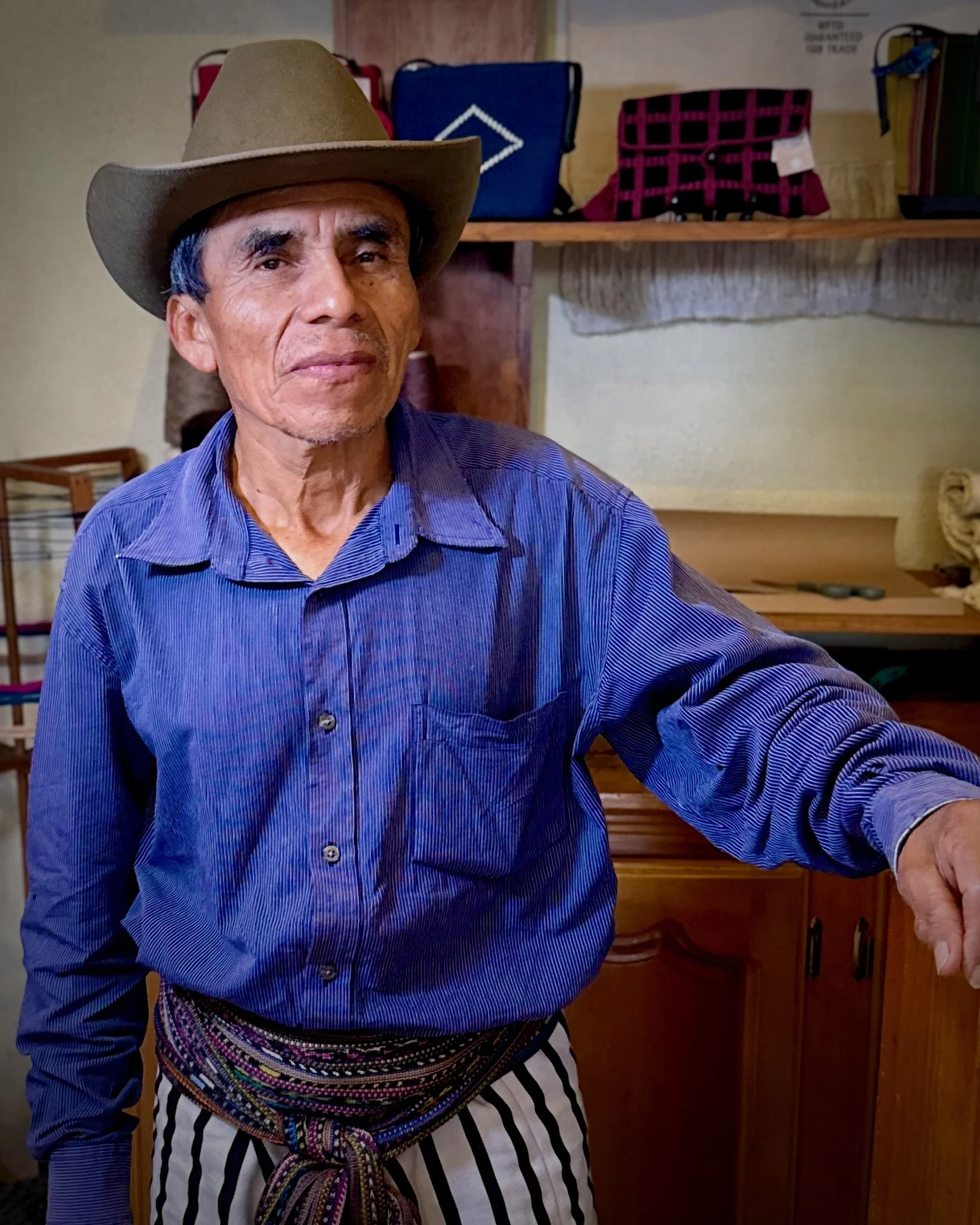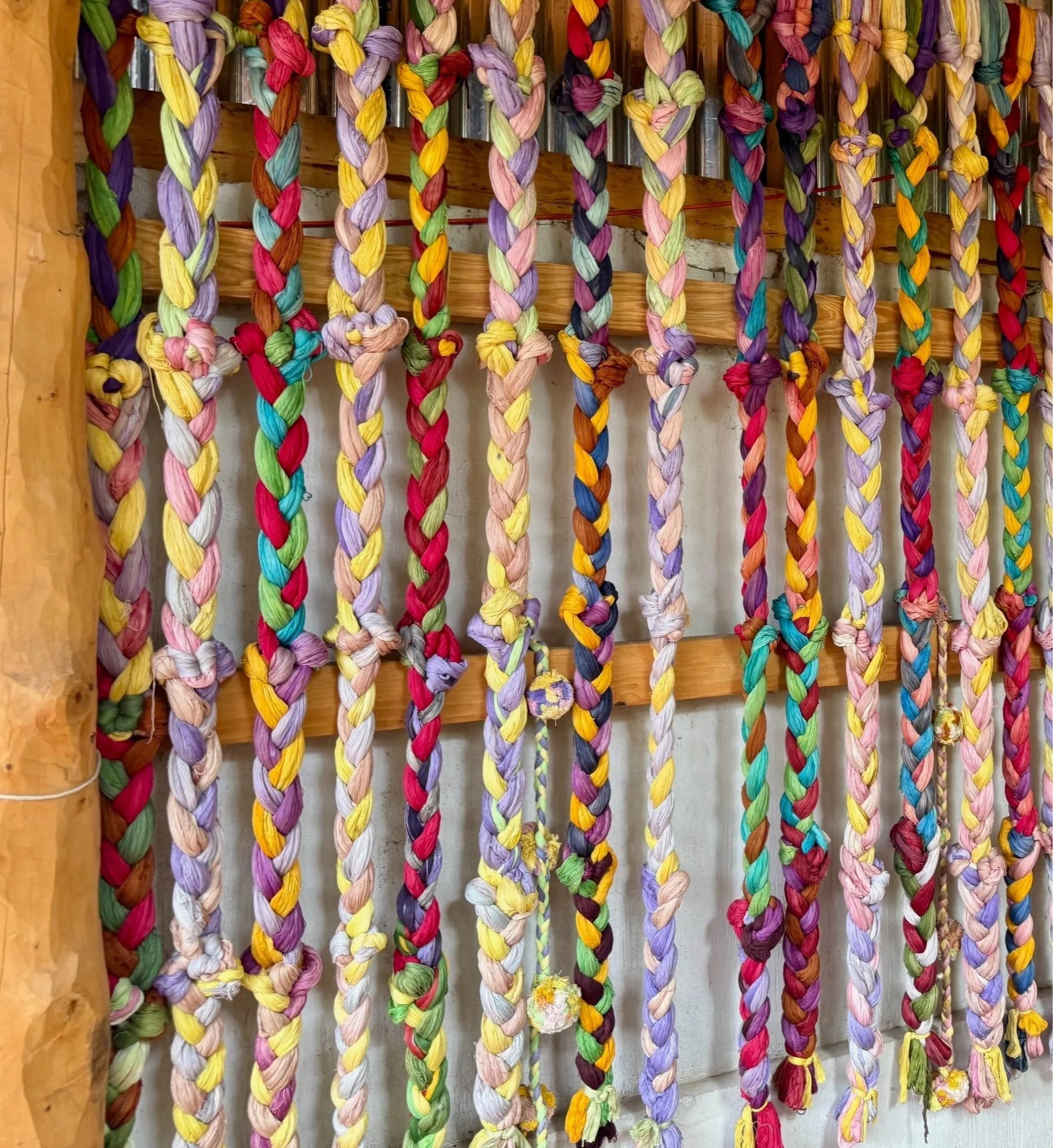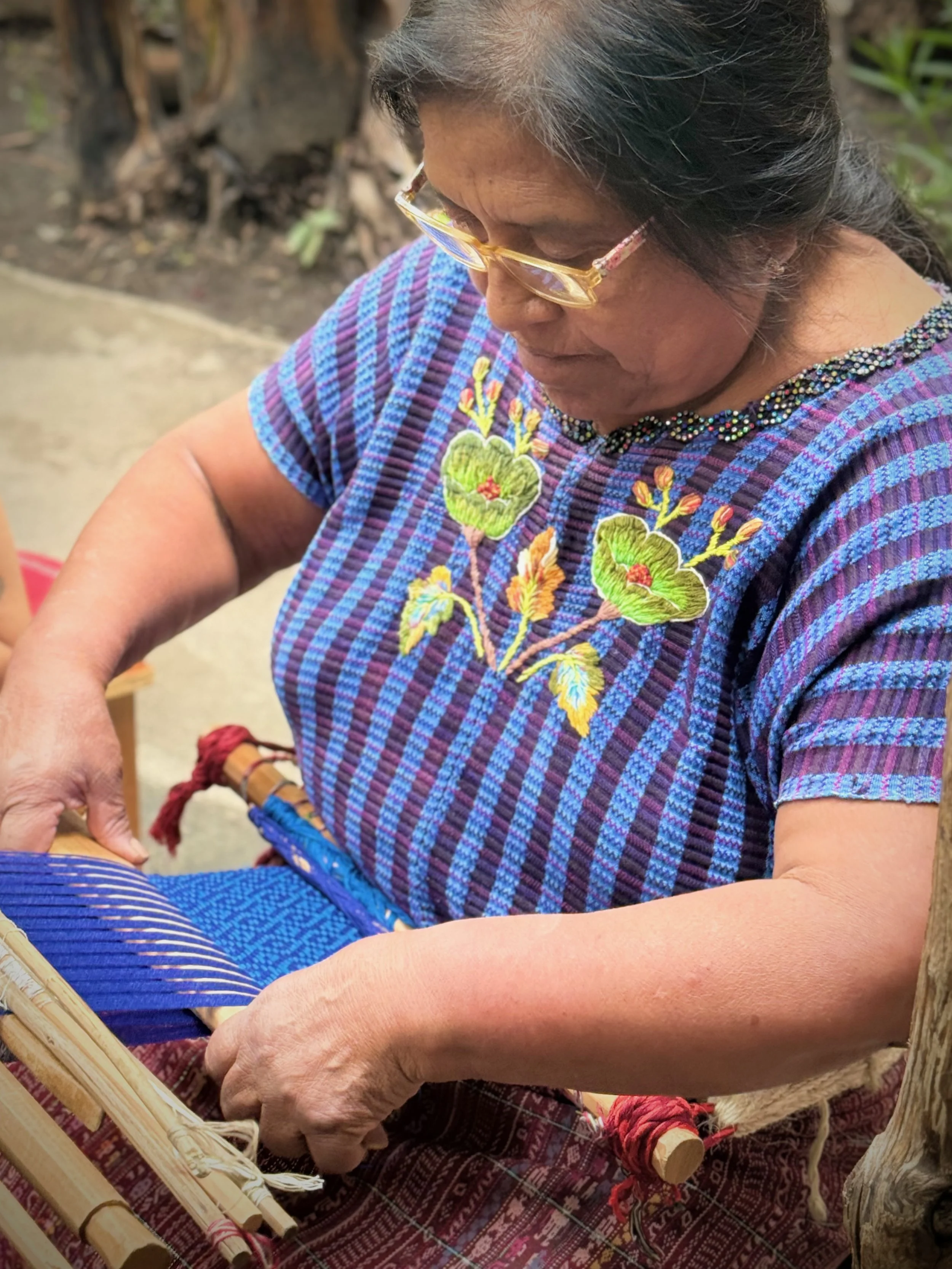Antonio Ramírez Sosof
Santiago, Sololá
Antonio Ramírez Sosof is the co-founder of Cojolya, a weaving collective supporting Tz’utujil Maya women. When he helped start Cojoyla in 1983, Guatemala was in the midst of a thirty-year civil war and Santiago, a city on the shores of Lake Atitlán, was a focal point of the conflict. He explains, “For years, this community lived through armed conflict—the civil war. Because of the conflict, there was a lot of discrimination, a lack of freedom, fear, and bloodshed.”
Some in the military viewed traditional textiles as subversive. The huipil, a traditional woven blouse worn by indigenous women, became a symbol of visual resistance, and weaving became an act of rebellion. Antonio and his co-founder, Candice Krummel, created Cojolya so that women weavers had a secure place to practice their craft. The name Cojolya, which means “place between two waters” in the Tz’utujil Maya language, reflects the hidden nature of its original location.
In 1990, following a massacre where 13 civilians were killed during a peaceful protest, the town of Santiago successfully expelled the military forces, and the community turned to rebuilding. Antonio explains how men and women faced different challenges: “There was also a big need for work, especially for women, because many men migrated to other departments of Guatemala, mostly in commerce or construction. But for women, the situation was totally different. There were no opportunities for education, and many women couldn’t speak or write in Spanish.”
More than a weaving cooperative, Cojolya provides women with steady income, social programs around health and education, and leadership opportunities. Antonio is proud of their continued success: “Today, we’re working with the second and third generation of women. Many of the original women have passed away, but their daughters continue.”
“During the Civil War, women were not allowed to gather in groups. It was dangerous…the women wove in secret.”


